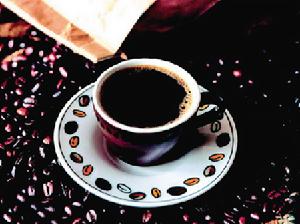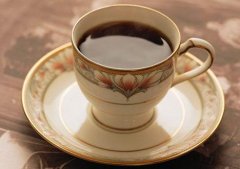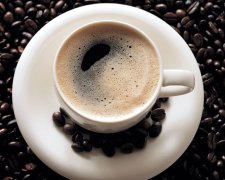Do Jamaican beans taste good? planting and processing of single beans in Jamaica

Professional barista communication, please pay attention to coffee workshop (Weixin Official Accounts cafe_style)
Jamaica Jamaica
Population: 2711000
Jamaica has only one coffee-growing area and is the most famous in the world.
BLUE MOUNTAIN
Blue Mountain Coffee, the most successful production in coffee history, Jamaica This particular region has been well defined and well protected. Only in Saint Andrew, Saint Thomas, Portland and Saint Mary can coffee grown at altitudes between 900 and 1500 metres (3000 and 4900 feet) be called "Jamaica Blue Mountain." Coffee grown between 450 and 900 meters (15,003, 000ft) above sea level is known as Jamaica High Mountain, while coffee beans grown below these areas are known as Jamaica Supreme or Jamaica Low Mountain. The traceability of Blue Mountain coffee can cause some confusion, as most coffees are sold according to the name of the plant where they were processed. These factories may occasionally buy coffee from a single large estate, but usually they buy it from the countless small farmers in the area. Jamaica's Blue Mountain coffee has long been exported to Japan in small barrels rather than sacks. It is also worth mentioning that because Blue Mountain coffee can soar in price, there are usually a large number of imitations on the market.
Altitude: 900- 1,500 m
Harvest: June-July
Varieties: Jamaica Blue Mountain (a Type derivative), Type
Jamaica is a small country, northeast of Kingston is the Blue Mountains. Most of the peaks of Blue Mountain are more than 1800 meters above sea level, and the famous Blue Mountain Coffee grows in this mountain area. Coffee in Jamaica was introduced in 1723 by a French naval officer from a neighbouring region, although cultivation of the crop did not initially attract sufficient weight. Blue Mountain coffee emerged in 1932 following an important decision by Jamaica authorities to encourage coffee cultivation to reduce dependence on sugar exports.
Blue Mountain Coffee's unique flavor is related to Blue Mountain's geographical location and climatic conditions. Generally speaking, south of the Tropic of Cancer and north of the Tropic of Cancer, this area is suitable for growing coffee, known as the "coffee belt". Jamaica is just south of the Tropic of Cancer.
Blue Mountain steep, fresh air, no pollution, rainy all year round, large temperature difference between day and night, has a unique fertile new volcanic soil. Most importantly, every afternoon, clouds cover the whole mountain area, which not only provides natural shade for coffee trees, but also brings abundant water vapor. Superior geographical and climatic conditions, so that the taste and aroma of Blue Mountain coffee outstanding, to be proud of other similar.
In addition to outstanding natural conditions, Blue Mountain coffee from planting, picking, to cleaning, shelling, roasting, etc., each process is very particular, there are strict standards. For example, there are clear regulations on what organic fertilizer needs to be used in which growing period, picking and many subsequent procedures are completed by hand, most of which are female workers. Jamaica is one of the last countries to ship coffee in traditional barrel packaging in order to guarantee the quality of coffee during transportation.
At a Blue Mountain coffee processing plant dedicated to tourists, the narrator revealed to reporters the "secret" of why Blue Mountain coffee tastes pure: their coffee trees all grow on rugged hillsides, and the picking process is very difficult, and non-local skilled female workers are simply unable to do it.
It's important to pick coffee beans that are ripe, as immature or overripe can affect the quality of coffee. The beans are shelled the same day and allowed to ferment for 12-18 hours. Coffee beans are then washed and sifted. After that, the process is drying, which must be carried out on concrete floor or thick blanket until the humidity of coffee beans drops to 12%-14%. Then they are stored in special silos. When needed, it is taken out and roasted, and then ground into powder. These procedures must be strictly controlled, otherwise, the quality of coffee will be affected.
Blue Mountain Coffee can maintain today's top status, but also with the local government's policy of limiting production and quality. Jamaica does not mass-produce Blue Mountain coffee regardless of quality because it is famous. Instead, quality was given priority, and it was better to sacrifice production and protect the gold-lettered signboard of Blue Mountain Coffee.
Brazil, the world's largest coffee producer, produces 30 million bags (60 kilograms each) a year, while Jamaica produces just over 40, 000 bags a year. The difference in output can be seen here.
Blue Mountain coffee beans are divided into several types according to quality. The top blue mountain coffee beans generally do not enter the circulation market. Most of them are reserved by the royal family and the rich. The listed blue mountain coffee beans are the "Blue Mountain" brand coffee beans guaranteed by the Jamaica government. Statistics from the International Coffee Organization website show that in 2003- 04, Jamaica produced 43,000 bags of coffee, of which 24,000 were exported. Nearly 90% of exports go to Japan and the rest to Europe and the United States.
Due to limited production and small export volume, Blue Mountain Coffee has been in short supply on the international market. As the saying goes, rare is expensive. Blue Mountain coffee is expensive even in its country of origin. A 4-ounce (114-gram) bag of Blue Mountain coffee sells for nearly $7 in the Jamaica market.
In recent years, various coffee shops have sprung up in China, and top-grade Blue Mountain Coffee has naturally become the target of people, especially young people. For a moment, it seemed that only when you tasted Blue Mountain coffee could you really drink coffee. And if you don't sell Blue Mountain coffee, you're not a real coffee shop. Domestic "Blue Mountain Coffee" price per cup from more than 30 yuan to more than 100 yuan, really expensive.
Of course, if it is genuine, the above price is also in line with the expensive status of Blue Mountain Coffee. However, Jamaica Blue Mountain coffee production and exports are limited, China does not import a share of Blue Mountain coffee directly from Jamaica, and the International Coffee Organization does not have any records of Blue Mountain coffee beans exported to China.
In addition, it is believed that most coffee lovers in China do not have considerable discrimination ability, and cannot distinguish the differences between different quality coffee. So remind people beware: although you pay a high price, but the coffee in your cup is likely not the real Blue Mountain coffee.
Jamaica's Blue Mountain Coffee is famous all over the world. Why does Blue Mountain Coffee taste so pure?
Important Notice :
前街咖啡 FrontStreet Coffee has moved to new addredd:
FrontStreet Coffee Address: 315,Donghua East Road,GuangZhou
Tel:020 38364473
- Prev

How to deal with the processing of Hawaiian beans in the United States? how to divide the grades of Hawaiian beans?
Professional baristas please follow the coffee workshop (Wechat official account cafe_style) the KAUAI ISLAND Kauai growing area is dominated by a single company running 1250 hectares (3100 acres) of coffee production. The Kauai Coffee Company began to grow coffee in the late 1980s, reducing the planting of sugar cane with a view to increasing agricultural diversification. Because of its large scale, the company is a highly mechanized farmer.
- Next

Jamaica single bean producing area introduces how to brew Jamaican single bean.
For professional baristas, please follow the coffee workshop (Wechat official account cafe_style). Of course, if it is the real thing, the above price is still in line with the prestigious status of Blue Mountain Coffee. However, the output and export volume of Jamaican Blue Mountain Coffee is limited, China does not import Blue Mountain Coffee directly from Jamaica, and the International Coffee Organization has no record of exporting Blue Mountain coffee beans to China.
Related
- Does Rose Summer choose Blue, Green or Red? Detailed explanation of Rose Summer Coffee plots and Classification in Panamanian Jade Manor
- What is the difference between the origin, producing area, processing plant, cooperative and manor of coffee beans?
- How fine does the espresso powder fit? how to grind the espresso?
- Sca coffee roasting degree color card coffee roasting degree 8 roasting color values what do you mean?
- The practice of lattes: how to make lattes at home
- Introduction to Indonesian Fine Coffee beans-- Java Coffee producing area of Indonesian Arabica Coffee
- How much will the flavor of light and medium roasted rose summer be expressed? What baking level is rose summer suitable for?
- Introduction to the characteristics of washing, sun-drying or wet-planing coffee commonly used in Mantenin, Indonesia
- Price characteristics of Arabica Coffee Bean Starbucks introduction to Manning Coffee Bean Taste producing area Variety Manor
- What is the authentic Yega flavor? What are the flavor characteristics of the really excellent Yejasuffi coffee beans?

